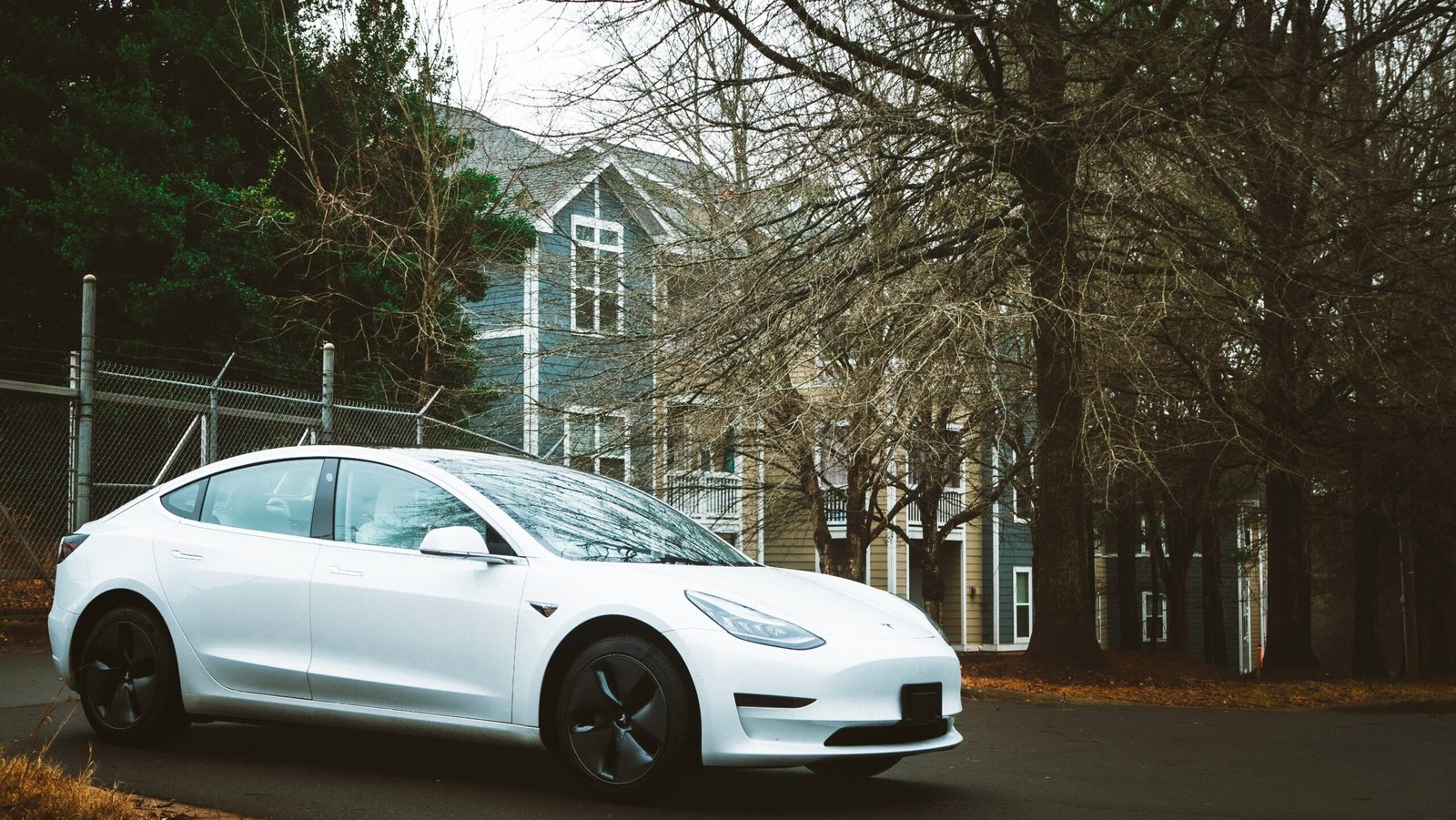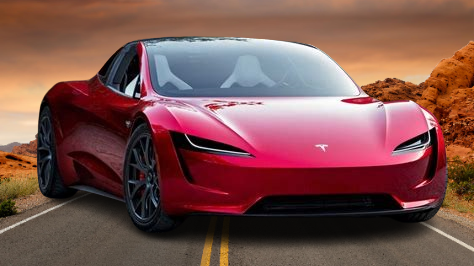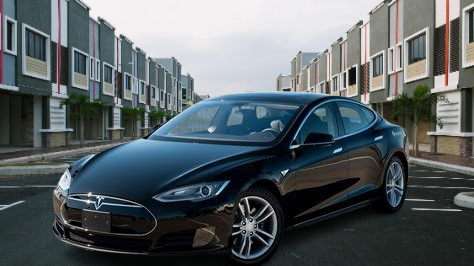Table of Contents

Introduction to Tesla Cars and Their Vision
Tesla, Inc., established in 2003, has emerged as a trailblazer in the automotive industry, renowned for its pioneering electric vehicles (EVs). The brand is synonymous with innovation, sustainability, and a commitment to transforming how we perceive and utilize transportation. Central to Tesla’s mission is the visionary leadership of its CEO, Elon Musk, who articulates a bold ambition: to accelerate the world’s transition to sustainable energy. This mission extends beyond simply manufacturing electric cars; it embodies a holistic approach that encompasses renewable energy generation and storage solutions.
From its inception, Tesla has sought to address critical global challenges, particularly the urgency of climate change and the reliance on fossil fuels. By introducing high-performance electric vehicles that do not compromise on style, functionality, or performance, Tesla has dramatically altered consumer perceptions of what electric cars can offer. The company’s flagship model, the Tesla Roadster, launched in 2008, showcased the potential of electric propulsion, and subsequently, models such as the Model S, Model X, Model 3, and Model Y have further solidified Tesla’s reputation as a leader in the EV market.
Moreover, Tesla’s vision extends to creating an integrated ecosystem for sustainable transport and energy. By developing cutting-edge technologies such as Autopilot—a sophisticated driver-assistance system—and innovations in battery technology, Tesla is not only reinventing the automobile but also setting new standards for safety, efficiency, and environmental stewardship. The company’s Supercharger network supports the long-distance travel of electric vehicles, facilitating widespread adoption and addressing range anxiety among consumers. Tesla’s endeavors signify a paradigm shift in the automotive landscape, establishing the premise that sustainability can coexist with luxury and high performance.
The Technological Advancements in Tesla Cars

Tesla has consistently set itself apart from traditional automobile manufacturers through a series of groundbreaking technological innovations. At the core of these advancements is the development of their advanced battery systems. Tesla cars utilize lithium-ion battery technology, which allows for greater energy density and improved driving range compared to conventional vehicles. These efficient battery systems enable longer distances between charges, addressing one of the primary concerns of electric vehicle ownership: range anxiety. With the introduction of Gigafactories, Tesla has significantly scaled up battery production, reducing costs and making electric mobility more accessible.
Another hallmark of Tesla’s evolution is its Autopilot technology, which leverages sophisticated algorithms and an array of sensors to assist drivers in various conditions. This system not only promotes safety through features like automatic lane-keeping and adaptive cruise control but also exemplifies the shift towards semi-autonomous driving capabilities. Tesla continuously enhances this technology via Over-the-Air (OTA) software updates, further setting them apart from many traditional vehicles that require manual updates and service center visits.
The seamless software updates are a notable differentiator for Tesla. By allowing cars to receive enhancements and new features remotely, Tesla owners enjoy improvements in performance and capabilities without needing to physically visit a dealership. This can range from better battery efficiency to upgraded Autopilot functionalities, thus keeping the vehicles at the forefront of technology long after the initial purchase. Through these remarkable innovations, Tesla is not only changing the landscape of electric vehicles but also redefining the consumer expectations in the automotive industry.
The Cultural Impact of Tesla Cars
The emergence of Tesla cars has sparked a significant cultural phenomenon that extends beyond traditional automotive boundaries. Tesla has become synonymous with innovation, sustainability, and a forward-thinking lifestyle. This image is largely shaped by the brand’s commitment to electric vehicles, a sector that resonates with the increasing global focus on environmental stewardship. By positioning itself at the forefront of the electric vehicle movement, Tesla not only promotes sustainable transportation but also encourages a broader cultural shift towards eco-consciousness.
Furthermore, the growing community of Tesla enthusiasts plays a crucial role in reinforcing this cultural impact. Tesla owners often embody a sense of pride and advocacy for a lifestyle that values energy efficiency and technological advancement. This community is active both online and offline, sharing experiences, tips, and driving metrics, which fosters a supportive environment for potential buyers. The camaraderie among Tesla owners contributes to a narrative that extends beyond mere vehicle ownership; it represents a commitment to a sustainable future.
Additionally, the branding efforts of Tesla have significantly influenced consumer perceptions surrounding electric cars. As Tesla continues to lead in innovation, particularly with features like Autopilot and over-the-air updates, consumers begin to associate electric vehicles with advanced technology rather than compromise. This shift in image has led to increased interest in electric cars across various demographics, no longer limited to eco-conscious buyers. Moreover, other automotive manufacturers are adapting their strategies to compete not just with Tesla’s technological prowess, but also with the lifestyle and community it has cultivated.
In conclusion, the cultural impact of Tesla cars is multifaceted, encompassing a blend of innovation, sustainability, and community engagement. As consumer behavior shifts towards sustainable and technologically advanced choices, Tesla remains a pivotal force in driving this transformation in the automotive landscape.
The Future of Tesla Cars and Sustainable Driving

As we look toward the future of Tesla cars, it is evident that the commitment to sustainability and innovation will continue to shape the brand’s trajectory and the automotive industry at large. Tesla’s ongoing advancements in electric vehicle technology position it at the forefront of the movement toward greener transportation solutions. The brand has already made remarkable strides in enhancing battery efficiency and expanding charging infrastructure, which is crucial for encouraging mass adoption of electric vehicles. In the coming years, we can expect Tesla to unveil new models that not only maintain their sleek design and performance but also incorporate the latest technology aimed at reducing the environmental impact.
One significant focus for Tesla is the development of energy-efficient manufacturing processes. This includes the use of sustainable materials and the implementation of recycling initiatives for their vehicles. As production scales, the environmental footprint of factory operations should decrease, reflecting the broader trend of sustainability within the automotive sector. Tesla is also keen on refining its autonomous driving capabilities, which could lead to safer, more efficient travel experiences for drivers. This technology has the potential to drastically reduce traffic congestion and emissions.
Furthermore, Tesla’s continuing investment in renewable energy solutions, such as solar energy and energy storage, indicates a holistic approach to sustainability. By promoting the integration of solar products with electric vehicles, Tesla aims to create a closed-loop system that supports sustainable driving while empowering consumers to harness renewable resources. As the automotive landscape continues to evolve, the impact of Tesla’s innovations will likely inspire other manufacturers to prioritize eco-friendly practices, thereby igniting a larger transformation within the industry.
In conclusion, Tesla’s forward-thinking vision positions it as a leader in sustainable driving, influencing not only drivers but the climate-conscious movement at large. With upcoming models and advancements, the future of Tesla cars promises to embark on a journey toward a cleaner and more sustainable world.





[…] addition to enhancing battery longevity, Tesla is focusing on improving charging speed, a critical factor for the consumer market. Innovations […]